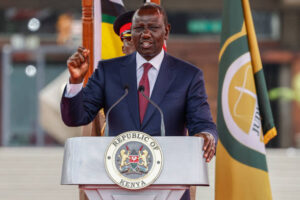
| Faith Nyongesa |
On Tuesday, June 18, Members of Parliament (MPs) aligned with the ruling Kenya Kwanza Alliance response to public pressure and made an announcement regarding the removal of controversial taxes in the Finance Bill 2024.

These taxes had been a cause of concern for many Kenyans, and their elimination was seen as a positive step towards alleviating the burden on the public.
One of the major taxes that was removed was the 16% Value Added Tax (VAT) on bread. This tax had been met with widespread criticism, as it would have increased the cost of living for many Kenyans. By removing this tax, the government aimed to address the issue of affordability and ensure that bread remains accessible to all.
In addition to the VAT on bread, other taxes that were eliminated included the VAT on transportation of sugarcane to factories, financial services, and foreign exchange transactions. These taxes were seen as unnecessary and would have further burdened the public. By removing them, the government aimed to ease the financial strain on Kenyans and promote economic growth.
Furthermore, the proposed 25% excise duty on vegetable oil was scrapped. This tax would have led to an increase in prices for Kenyans, making it more difficult for them to afford essential items. By eliminating this tax, the government aimed to prevent any further increase in the cost of living and ensure that essential commodities remain affordable.
Moreover, the levies on the Housing Fund and Social Health Insurance will now be income-tax deductible. This move aims to provide relief to Kenyans by reducing their tax burden and allowing them to save more money.
Additionally, locally manufactured items such as sanitary towels, diapers, phones, computers, tires, and motorcycles will be exempt from the eco levy. This exemption aims to promote local industries and encourage the production of essential goods within the country. By exempting these items from the eco levy, the government aims to support local businesses and make these products more affordable for Kenyans.
Overall, the removal of these controversial taxes and the exemption of certain items from the eco levy demonstrate the government’s commitment to addressing the concerns of the public and alleviating the financial burden on Kenyans. The decision to eliminate these taxes was made in response to public pressure and aims to promote economic growth and improve the standard of living for all Kenyans.




